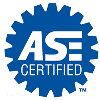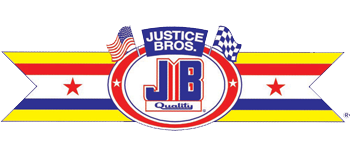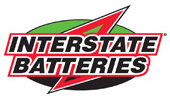Will Proper Auto Maintenance at McPherson Automotive Really Save Gas?
Posted May 26, 2019 10:35 AMHave you ever thought about all the little things we do to keep our lives running smoothly - like vacuuming? It makes a room feel fresher and more comfortable. We may not consider that we're also prolonging the life of the carpet by keeping it clean. But Du Quoin drivers don't always extend those good habits into the garage. Our vehicles need regular maintenance just like our rugs need vacuuming. We may not notice a difference in the feel or appearance of the vehicle, but just as cleaning a carpet carries the hidden reward of prolonging its life, maintaining our vehicles incurs a hidden reward that becomes noticeable at Du Quoin gas stations.
When it comes to reduced fuel economy, there are two culprits: increased friction and inefficient fuel combustion. That means that anything Du Quoin drivers can do to decrease friction and increase the efficiency of their engines will translate to savings on fuel. Friction increases the amount of energy it takes to move something. So if we can reduce friction, we can decrease the amount of fuel it takes to run our vehicles. Engine oil is usually at the heart of friction problems in an engine. Too little oil means parts are not getting lubricated, which increases friction; dirty oil doesn't lubricate as well as clean oil. So one secret to good fuel efficiency is to stay on top of oil changes. Don't skip them and don't procrastinate. The same auto advice applies to transmission fluid. Keep it full and keep it clean, and your vehicle will run with less friction and better fuel economy.
If your tires are underinflated, it increases the friction between the tire and the road. Again, there is increased drag, and it takes more fuel to move your vehicle. Du Quoin drivers should check their tire pressure every month and keep their tires properly inflated.
Alignment and brake problems can also increase friction. Besides saving fuel, keeping these systems in good repair has the added benefit of saving you on tires and brake pads. These items wear out more quickly when the alignment is off or when the brake system isn't in good working order. Talk to your friendly and knowledgeable service advisor at McPherson Automotive.
The second culprit that stealthily steals our gas is inefficient fuel combustion. It depends on the engine getting the right amount of clean fuel to the right place with the right pressure at the right time in the right pattern. The key to peak engine performance is to keep the fuel system clean. Varnish and gum can build up in a fuel system, which will interfere with the fuel injectors. The fuel injectors are responsible for all those “rights” we spoke of. If they're dirty, amounts, timing, pressure and spray patterns can all get out of whack. The result? Reduced fuel efficiency. A fuel system cleaning at McPherson Automotive in Du Quoin can get your injectors back on track, improving performance and efficiency.
There are a few other maintenance items that can improve your fuel economy. One is to replace your PCV valve when it gets sticky. This valve allows unburned fuel in your engine exhaust to return to the engine. Du Quoin drivers can also replace worn spark plugs and dirty fuel filters. A well-maintained vehicle will require fewer repairs and save at Du Quoin gas pumps.
McPherson Automotive
1 E Park St
Du Quoin, IL 62832
(618) 542-9203
http://www.mcphersonautomotive.net
Positive Crankcase Ventilation ? PCV Valve Service at McPherson Automotive
Posted May 19, 2019 8:17 AMHello Du Quoin! Did you know that the first federally-mandated emissions control device was introduced in the 1960's? The Positive Crankcase Ventilation valve, or PCV valve, has been installed in IL vehicles since 1964 and represents the first legislation by the United States government to regulate harmful emissions as well as to improve performance in the country's vehicles.
The PCV valve, as you can probably guess, is located on the crankcase. The crankcase is the lowest part of a vehicle's engine. It houses the crankshaft and the engine oil. The crankshaft connects to the pistons that power the engine.
Pistons are pushed down when fuel is burned in an engine. This causes the crankshaft to rotate, which sends power to the transmission. It ultimately turns the axles and causes the vehicle to move. Some of the gases released by the burning fuel squeeze around the pistons and down into the crankcase.
If the escaped gases mix with the engine oil in the crankcase, oil sludge develops. This sludge has the consistency of petroleum jelly and can cause damage by clogging up passageways in the engine. Further, escaped gases can build up pressure inside the crankcase that can blow out seals and gaskets.
Before 1964, a hose was attached to the crankcase that vented escaped gases out into the air. These gases contained about 70% unburned fuel as well as harmful emissions. The PCV valve was designed to curb these harmful emissions as well as recapture unburned fuel.
The PCV valve is a small, one-way valve that allows escaped gases to exit the crankcase. The gases are then routed into the intake system so they can be re-burned in the engine. Fresh air enters the crankcase through a breather tube to facilitate this circulation and keep the air in the crankcase clean.
The PCV valve, like most working parts on a vehicle, will wear out over time. Usually it simply gets gummed up. Preventive maintenance, including routine oil changes at McPherson Automotive in Du Quoin, will extend the life of the valve, but eventually it will have to be replaced. A sticking PCV valve won't allow gases to circulate properly, which can increase pressure in the crankcase. Over time, that pressure will lead to oil leaks.
Your vehicle manufacturer recommends that a PCV valve be replaced every 20,000 to 50,000 miles (32,000 to 80,000 kilometers), depending on the vehicle and Du Quoin driving conditions. It's an inexpensive repair but may not be included in the maintenance schedule in your owner's manual. So if you're looking for auto advice about the PCV valve, you may have to ask our pros at McPherson Automotive.
Taking care of our PCV valve protects the environment in IL and improves vehicle performance. It's just part of good vehicle care for Du Quoin drivers and a way all of us can do our part to improve the world we live in.
McPherson Automotive
1 E Park St
Du Quoin, IL 62832
(618) 542-9203
http://www.mcphersonautomotive.net
Tire Tread Depth for Du Quoin, IL Drivers
Posted May 12, 2019 12:46 PM
Driving on bald tires is like playing roulette. Though you may be fine today, eventually your luck is going to run out.
The Feds don't have any laws for tread depth, but 42 of the states, and all of Canada, do have regulations. They consider 2/32 of an inch to be the minimum legal tread depth. Two other states, including California, consider 1/32 to be the minimum and six states have no standards at all. Call us at McPherson Automotive; (just call (618) 542-9203) to find out what your requirements are in the Du Quoin, IL, area.
Since 1968, U.S. law has required that a raised bar be molded across all tires. When tires are worn enough that this bar becomes visible, there's just 2/32 inch/1.6 mm of tread left. But does that older standard give Du Quoin vehicles enough safety?
Consider this: Consumer Reports recommends tire replacement when tread reaches 4/32 inch/3.2 mm. And the recommendation is backed by some very compelling studies. Now before we go into the studies, you need to know that the issue is braking on wet surfaces.
We tend to think of the brakes doing all the stopping, but Du Quoin vehicles also need to have effective tires to actually stop the car. When it's wet or snowy in Du Quoin, IL, the tread of the tire is critical to stopping power.
Picture this: you're driving in Du Quoin over a water-covered stretch of road. Your tires need to be in contact with the road in order to stop. That means the tire has to channel the water away so the tire is contacting the road and not floating on a thin film of water – a condition known as hydroplaning. When there's not enough tread depth on a tire, it can't move the water out of the way and you start to hydroplane.
This is where the studies come in. We think Du Quoin drivers will be surprised. A section of a test track was flooded with a thin layer of water. If you laid a dime flat on the track, the water would be deep enough to surround the coin, but not enough to submerge it.
A car and a full-sized pick-up truck were brought up to 70 mph/112 kph and then made a hard stop in the wet test area. Stopping distance and time were measured for three different tire depths. First, they tested new tires. Then tires worn to legal limits. And finally, tires with 4/32 inch/3.2 mm of tread were tested (the depth suggested by Consumer Reports.)
When the car with the legally worn tires had braked for the distance required to stop the car with new tires, it was still going 55 mph/89 kph. The stopping distance was nearly doubled. That means if you barely have room to stop with new tires, then you would hit the car in front of you at 55 mph/89 kph with the worn tires.
Now with the partially worn tires – at the depth recommended by Consumer Reports – the car was still going at 45 mph/72 kph at the point where new tires brought the car to a halt. That's a big improvement – you can see why Consumer Reports and others are calling for a new standard.
Now without going into all the details, let us tell you that stopping the truck with worn tires needed almost 1/10 of a mile (.16 km) of clear road ahead to come to a safe stop. How many Du Quoin drivers follow that far behind the vehicle ahead? Obviously, this is a big safety issue.
The tests were conducted with the same vehicles but with different sets of tires. The brakes were the same, so the only variable was the tires.
How do people in Du Quoin know when their tires are at 4/32 inch/3.2 mm? Well, it's pretty easy. Just insert an American quarter into the tread. Put it in upside down. If the tread doesn't cover George Washington's hairline, it's time to replace your tires. With a Canadian quarter, the tread should cover the numbers in the year stamp.
Now you may remember doing that with pennies. But an American penny gives you 2/32 inch/1.6 mm to Abraham Lincoln's head. The quarter is the new standard – 4/32 inch/3.2 mm.
Tires are a big ticket item, and most people in Du Quoin, IL, want to get thousands of miles/kilometers out of them. Just remember: driving on bald tires is like playing roulette.
Have Mr. Washington look at your tires today. If he recommends a new set, come see us at McPherson Automotive in Du Quoin.
McPherson Automotive
1 E Park St
Du Quoin, IL 62832
(618) 542-9203
http://www.mcphersonautomotive.net
Deep Clean Your Fuel System at McPherson Automotive
Posted May 5, 2019 1:32 AMHaving trouble with your fuel system? Bring your vehicle into McPherson Automotive for a check up.
In today's McPherson Automotive auto post, we're talking about fuel system cleaning. The first thing to know is how important it is to have a clean fuel system. Du Quoin residents need fuel to go, and the cleaner the fuel system, the more efficiently the fuel will burn. That means more power and better mileage .
A clean fuel system saves money for Du Quoin drivers at IL gas stations. We guess you could say it all starts and ends at the pump. One of the most important things Du Quoin residents can do to keep their vehicle fuel system clean is to buy good quality gas. Major brands have detergents that keep gum and varnish from rapidly building up in the fuel system.
So buying cheaper gas in IL can actually be more expensive for Du Quoin drivers in the long run. Now, most cars on IL roads are more than five or six years old. That means they've had time for some dirt and rust to start accumulating in the fuel tank. This junk needs to be filtered out of the fuel before it hits your vehicle engine. That's the fuel filter's job.
When the fuel filter is clogged, the dirty fuel will bypass the filter and go on up to the engine where it can clog fuel injectors and get into the cylinders. So Du Quoin residents should have their fuel filter changed when recommended. Check your owner's manual or ask your friendly and knowledgeable McPherson Automotive service advisor if your fuel filter is due for replacement.
McPherson Automotive
1 E Park St
Du Quoin, IL 62832
(618) 542-9203
http://www.mcphersonautomotive.net













